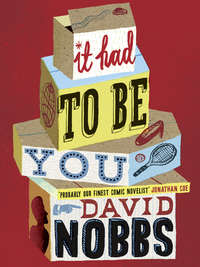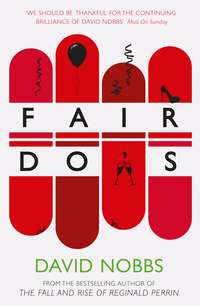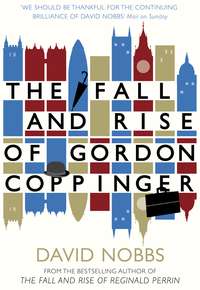
Полная версия
A Piece of the Sky is Missing
‘Thanks, Polly. It’s been lovely. See you,’ he said.
As he went down the stairs his pants and vest stuck to his body. He opened the door and breathed a great gulp of air. He was feeling sick. He was a lump in the sore throat of night. He felt messy and miserable. He wanted to play Scrabble and read books and improve his mind and work hard and help British exports and raise a family. His own children, loved and loving.
He picked up a milk bottle and hurled it viciously at the railings. Nothing stirred in the Swiss Cottage night.
It was 2.45 a.m. Perhaps Brenda or Doreen would be there and they could have a cup of coffee, delaying the moment when he’d be alone again, alone in bed. But perhaps they wouldn’t.
Bayswater 27663. Probably she’d be in bed, or still at the party, or with someone. It was absurd to ring her up at 2.45 a.m.
The tone of her telephone was French and encouraging. He whistled to keep up his worldliness.
‘Hullo.’
‘Hullo. Robert here.’
‘Who?’
‘Robert. I met you at the party.’
‘Oh, yes. Hullo.’
‘I hope I haven’t disturbed you.’
‘No. I was just having a coffee before going to bed.’
‘It’s just that I’ve sort of found myself in your area and …’ And what?
‘Twenty-three, Leominster Crescent. Top bell.’
He took a taxi. She lived between Bayswater and Notting Hill, also in a nineteenth-century terrace, but this one was cream. She had a glorious Persian carpet – a family heirloom – and a great number of books. She had a record player but no television. She was tall, slim, angular, with rather a large nose and a voice that sounded as if she had a perpetual cold caught at a very good school. When she was old there would be a permanent dewdrop on the end of her nose. She wasn’t his cup of tea, unlike her coffee, which was superb.
She represented good coffee and elegant maturity. She had bags under her eyes, and looked tired, but made no effort to get rid of him. She was 23. He couldn’t kiss her, couldn’t rouse himself to anything like that, and she seemed to understand this. She told him how much she hated parties. She didn’t mention the man she’d been with. They played a desultory but enjoyable game of Scrabble and she gave him a pile of books which she thought he’d enjoy. She asked him why he tried so hard to be amusing. Did he think himself dull? She didn’t think he was dull, except perhaps when he tried to be amusing.
They had further cups of coffee and he began to tell her the story of his life. At last the grey nicotine-stained thumbs of a London dawn began to squeeze the darkness out of the sky. Sonia drew back the curtains and made breakfast, and then he went home to bed.
‘I’m sorry I told you the story of my life,’ he said.
‘Not at all. I enjoyed it,’ she said.
Chapter 3
Early Days
Our story begins in the early hours of a fresh May morning in West London – in Richmond, to be precise – in the front second floor bedroom of number 10, River View West, to be still more precise. At 4.14 a.m. on that day in 1935 there was born to Emma Jane Bellamy, frail young wife of Thomas Robert Cunard Eddison Bellamy, a son. It was a surprisingly normal and easy birth. The boy weighed eight pounds, five ounces, had a hearty pair of lungs, sought more of his mother’s milk than his mother’s frail health permitted him, and was christened Robert Thomas Cunard Eddison Bellamy.
The prosperity of the Bellamy family had been founded in the eighteenth century by one Thomas Robert Bellamy who invented new ways of curing warts and herrings. Bellamy’s Bloater Paste and Bellamy’s Herbal Bunion Remover have a modest reputation even today in some of the more outlandish corners of Eastern England. But the family did not remain for long in these traditional pursuits. They turned their backs on the vulgarities of industry and became farmers and lawyers. Thomas Bellamy was already, at the time of his son’s birth, making a considerable name for himself in the harsh discipline of the bar. On the night of the happy event his attention was in fact divided between the bawling but as yet uninteresting infant and the preparation of what was perhaps to be his greatest case – the prosecution of the notorious Butcher of Wentworth, also known as the Stiletto Niblick Murderer, who lured his innocent victims into a bunker on the dog-leg seventeenth, always a treacherous hole. Thomas Bellamy was a staunch Conservative and a stern though humane disciplinarian. He loved his country, his wife and his only child – in that order.
Emma Bellamy’s flawless beauty revealed little of her physical frailty. Only her intimate friends knew how much suffering her asthma, anaemia, weak heart, gall-stones, ostler’s ankle, Higson’s disease and nervous headaches cost her. After Robert’s birth her husband did not permit her to rise until twelve-thirty or to remain up after nine-thirty. She spent most of the day reclining on a sofa reading books about art and architecture. Young Robert adored her from afar. He respected his father from afar and adored his mother, while his practical wants were taken care of by his nanny.
‘Ah!’ said Dr Schmuck.
The Bellamy household was, as households go, a happy one. The young child, too, seemed happy. Perhaps he had to be rather more quiet than he would have wished, because of his mother’s health. Perhaps his contacts with the other young children of the neighbourhood were not quite as frequent as he would have liked. Perhaps his social life was unduly restricted by his family’s fear that he would fall into the Thames. But there was a reason for this. He was the only male Bellamy of his generation. On his well-being depended the continuation of the family name. He must have mumps as early as possible, and no other serious diseases at all.
Grandfather Bellamy, the only man among five sisters, and now dead, had three children – Robert’s father, and his aunts Margaret and Hetty. Grandfather Bellamy’s cousin, Thomas Bellamy, never married and Thomas’s brother Robert had two children – Phyllis, who became a nun, and Thomas, who was struck by lightning at the age of twenty. Robert’s Great Uncle Thomas, a keen ornithologist, spotted a new kind of warbler near Wootton Bassett, and for a few glorious years it was accepted as a sub-species and known as Bellamy’s Warbler. But it was struck off the list in 1928, having proved to be only a slightly albino Dusky Warbler, and it now lay in Robert’s power, and his alone – for his mother was too frail to have further children – to save the family name from being associated solely with bloaters and bunions.
One Sunday afternoon in early 1938, Nanny and Robert were brought downstairs to have tea with his parents. In the street could be heard the merry pre-war street cries of the muffin man, the crumpet man, the ice-cream man and the itinerant furniture remover. But already the clouds of war were beginning to gather. At lunch Aunt Margaret had commented: ‘There’ll be war, you mark my words. That Hitler – he’s a bad lot.’ His mother had said: ‘I’m not so sure. I think Herr Hitler has been misjudged.’ Now at tea, Nanny struck a more domestic note.
‘Which little boy doesn’t like potty?’ she said.
Robert threw a buttered muffin at her and was taken upstairs, screaming and kicking, to bed. Such scenes were surprisingly common, did the parents but know it.
When they were alone Emma said to her husband: ‘Will there really be a war?’
‘Probably.’
‘Poor Robert. What sort of a world have we brought him into?’
‘A man’s world,’ said his father.
‘I don’t think a child ought actually to like potty,’ said Emma. ‘He should endure it as a necessary evil.’
‘Yes. Quite right,’ said his father.
‘Thomas?’
‘Yes?’
‘It isn’t true, is it?’
‘What isn’t true?’
‘That you – what people are saying, Thomas. That you keep me in poor health because – because you have – another woman. Oh, Thomas, I know it isn’t true.’
‘Of course it isn’t true, my dear.’ He kissed her gently, so as not to hurt her. ‘How could I keep you in poor health? Your poor health is your own.’
‘I know. It’s ridiculous. People are wicked to say such things. I could believe them of some men, but not of you. You’re such an idealist.’
‘I’ve tried to be,’ said Thomas.
‘I only hope Robert grows up to be like you, Thomas.’
‘It won’t be our fault if he doesn’t.’
And then the war came.
Chapter 4
War
When he was young they had a war. They lived in a house in the country then. It was a small house. Mummy and Nanny and Robert lived in it. His daddy was in the war. His daddy had gone a long way to the war, because it was very important, and his daddy was brave. You had to be brave to go to the war, because it was such a long way away.
Mummy wasn’t well. She spent a lot of the time in bed. Daddy sent her dispatches, in which he was mentioned. Nanny did the cooking. Soggy pudding. Soggy Nanny pudding. Once his daddy came home. Everything was different from before. Nobody enjoyed it. His daddy was very quiet. He smelt of war. Mummy smelt of bedrooms and Nanny smelt of soggy Nanny pudding. Robert went to school. He fell in love with Cerise. He had tempers. You mustn’t show your temper. Cerise doesn’t show her temper. But Cerise doesn’t show her temper because she hasn’t got one, Nanny. Then you shouldn’t have one. But I have. It’s so unfair. Who ever said life was fair, said bitter jilted long ago dealt with unfairly always unlucky Nanny. I did, said Robert. And God. We did. I wonder where he gets it from, said his mummy. It’s his red hair, said his nanny. Yes, but I have red hair too, said his mummy.
One snowy evening his friends Trevor and Cerise and Helen and Simon came to tea. The world was white. The light faded. The logs crackled. Helen was a fat person. Cerise was a thin person. Nanny was a Nanny pudding. Mummy was upstairs.
After tea Cerise built a hospital with some bricks. He tried to help and knocked the bricks down. Cerise howled and said: ‘You’ve spoilt my hospital.’
‘I didn’t know it was a hospital.’
Cerise built the hospital again. The others played other games, but Robert had eyes only for Cerise.
‘It’s finished,’ she said. ‘This is where I work and this is where you eat and this is where people who are ill go and this is where you put all the broken legs and this is for dead people and this is outpatients and this is babies and this is the annexe.’
‘What’s an annexe for?’
‘I don’t know.’
‘Then why do you have one?’
She stuck her square little jaw out and said: ‘All hospitals have one.’
‘Will I go there when I die?’
‘Yes.’
‘Hard luck, I won’t, because I’ve decided not to die.’
‘Everybody dies, silly.’
‘No, they don’t. They get better, because it’s a hospital.’
‘A hospital is where you die.’
‘Won’t you make them better, then?’
‘If I made them better, I’d be God.’
But that’s just what she was.
She left the hospital and joined in the game with the others. He kicked the hospital and it fell down. She didn’t care. He couldn’t hurt her that way. So he bashed her face in. She cried. She had a nose-bleed and a black eye. Simon bashed his face in. They fought bitterly. Nanny rushed in, flailing and shouting. Order was restored. Cerise held her head back and still the blood came. He wanted to say sorry and he wanted to taste the blood. Cerise was taken home by her big sister Jessica.
The next day they heard that his daddy had been killed. The snow was white, and the sun shone. His mummy cried, and his nanny was very quiet. That night Mummy didn’t go to bed so early. She read a book until very late, and during the next few days people came, and his mummy was up and about, and his mummy did some of the cooking, and Nanny was ill, and Cerise never mentioned it, and the snow melted, and they had a war, when he was young.
‘How do you know Nanny’d been jilted?’ said Dr Schmuck.
‘I don’t,’ said Robert.
Конец ознакомительного фрагмента.
Текст предоставлен ООО «ЛитРес».
Прочитайте эту книгу целиком, купив полную легальную версию на ЛитРес.
Безопасно оплатить книгу можно банковской картой Visa, MasterCard, Maestro, со счета мобильного телефона, с платежного терминала, в салоне МТС или Связной, через PayPal, WebMoney, Яндекс.Деньги, QIWI Кошелек, бонусными картами или другим удобным Вам способом.








